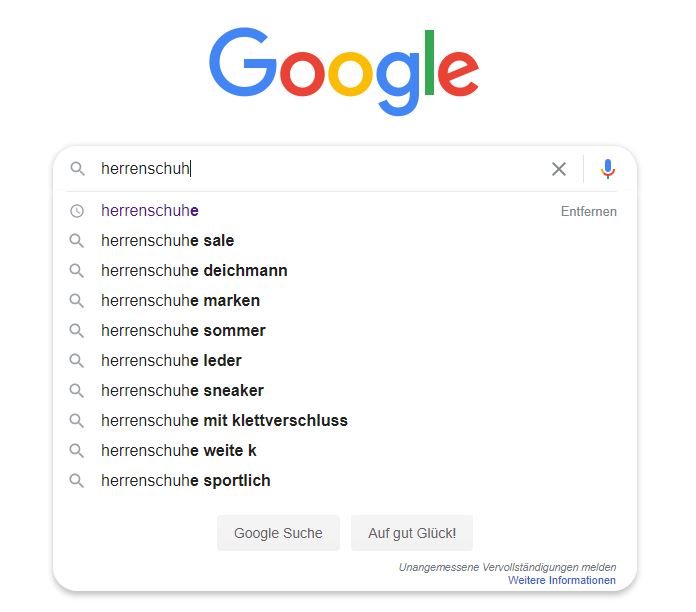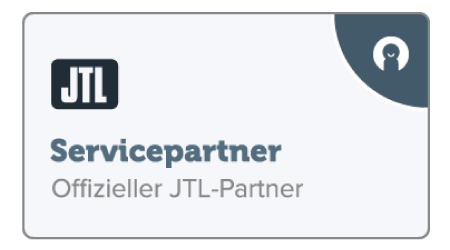
How to do SEO? – #4 Keywords
Search engine optimization requires keywords
Whether you want to optimize your website for search engines or place Google Ads, you will have to deal with keywords. For SEO, you need to consciously use keywords on your website so that you can be found for search queries that are relevant to you and your website. With SEA, you only want your ads to be displayed when users are really interested in your products or services. For this reason, you should use keywords very deliberately to only attract users to your ad who may also want to buy something from you. But what are keywords anyway? Keywords are terms that trigger a search. For example, if someone searches for “men’s shoes” on Google, “men’s shoe” is the corresponding keyword. But “men’s shoe size 45 blue” can also be a keyword. “Men’s shoe size 45 blue” is a so-called long-tail keyword, a search query that results from several keyword combinations. The use of long-tail keywords can be particularly useful when certain keywords are extremely competitive. In the following blog post, we want to show you how:
- how to find the right keywords for you and your company
- how you can use them to your advantage
- how you can assess the success of your keywords
How do I find the right keyword for my company?
1. Use your expertise as a search engine user
If you want to optimize your website for certain keywords, you will inevitably ask yourself which keywords are relevant for your company. As a first step, it helps to be aware of your own expertise as a search engine user. We all use search engines every day, whether Google, Amazon or eBay. Imagine you were searching for products that you offer. What would you type into the search box? Does your company offer shoes? If you were looking for shoes, would you really just type shoes into your search box? Probably not, right? If you were looking for shoes with high heels, you would probably search for “high heels”. If you’re looking for leather shoes for men, you might type in “men’s leather shoes”. Think about what products you offer and what the users of those products look like. What are they likely to be looking for? This will allow you to create an initial rough list of keywords.
2. Useful tools
If you need help finding keywords, you can also use tools that help you create keyword lists. The online market is overflowing with keyword planners, so you can find the right tool for every need. We would therefore like to present just three options that you could use to supplement your keyword lists and monitor keywords.
1. The Google search
 A very simple method of supplementing the keyword list, for which no special tool is required, is to use Google Search. Simply enter a keyword you already know and see what suggestions Google gives you
A very simple method of supplementing the keyword list, for which no special tool is required, is to use Google Search. Simply enter a keyword you already know and see what suggestions Google gives you
2. Google Keyword Planner
Google has its own keyword planner. Google’s tool helps with keyword research and indicates how often certain terms are searched for. By specifying the so-called search volume, you can estimate how often a term is searched for and whether it is worth optimizing for this keyword.
3. Seobility
Seobility not only offers a tool that helps you to find the right keywords, it also helps you to monitor them for your website. After you have created a keyword list with the help of Seobility’s suggestions, Seobility checks the ranking of your website for these keywords. In the suggestions that Seobility generates for you, you can also directly see the search volume, i.e. how often the keyword is searched for per month, and the CPC, which shows how much you would have to pay for a click if you were to place search engine advertising for the respective keyword. You can then add this keyword to your monitored list with a simple click.  Seobility then monitors your ranking for your keywords and shows where you are ranked for the respective keyword, i.e. in which position you would be displayed, and which of your website pages are ranked for the keyword.
Seobility then monitors your ranking for your keywords and shows where you are ranked for the respective keyword, i.e. in which position you would be displayed, and which of your website pages are ranked for the keyword. 
3. Long-tail keywords for particularly competitive terms
If a term is particularly competitive, it is worth using long-tail keywords. Instead of optimizing one of your subpages for the term “men’s shoes”, you could, for example, consider which aspects make your men’s shoes special and try to find suitable long-tail keywords. One option here would be to add the place where you sell the shoes and another special feature to the search term. “Men’s shoes Aachen leather” would be one possibility here. Here you have to find the fine line between being too specific to be searched for at all and being too open and therefore too competitive. The tools mentioned above can help you assess your keywords.
Where should keywords be placed?
1. Different keywords per page
First of all, you should be aware that you should optimize the subpages of your website for different keywords. Google and other search engines do not consider your website as a whole, but each URL individually. If you optimize all the subpages of your website for only one keyword, your web pages may compete with each other for ranking. Therefore, plan your website in a way that your subpages are each optimized for different keywords.
2. Keywords in headings, meta descriptions and text
Once you have planned your website, the question arises as to where the keywords should appear. Keywords should appear in headings, lists, meta tags and, of course, in the body text. The search engines process all the information and consider which keywords the website is likely to be relevant for. The terms in the headings and meta descriptions are probably more important than those in the normal body text. However, the exact evaluation of search engine algorithms is unknown, so no formula can be given as to what perfect search engine optimization looks like. However, experience shows that a high keyword density can contribute to a better ranking. However, it should not be forgotten that you are not writing your texts for search engines, but for people. Frequent use of keywords is good, but excessive use is annoying to read, so your visitors are more likely to turn away disappointed. Here, too, you need to find the right balance. If you need tips on writing good website texts, take a look at our blog post “6 tips for good website copy”.
How can I check if my website is ranking for certain keywords?
Now we have covered all the important steps of search engine optimization for keywords. We have:
- Identified relevant keywords
- Set different keywords for your subpages
- optimized your pages for these
- Used keywords in headings, meta tags and the body text
and want to check the success of your optimization. We have already shown you above that there are helpful tools such as Seobility. We will explain exactly how these work in our upcoming blog post “Measuring success on Google: Is your search engine optimization delivering the desired results?” If you have any further questions about keywords or search engine optimization, feel free to contact us! We are here for you in all matters relating to your website optimization!








